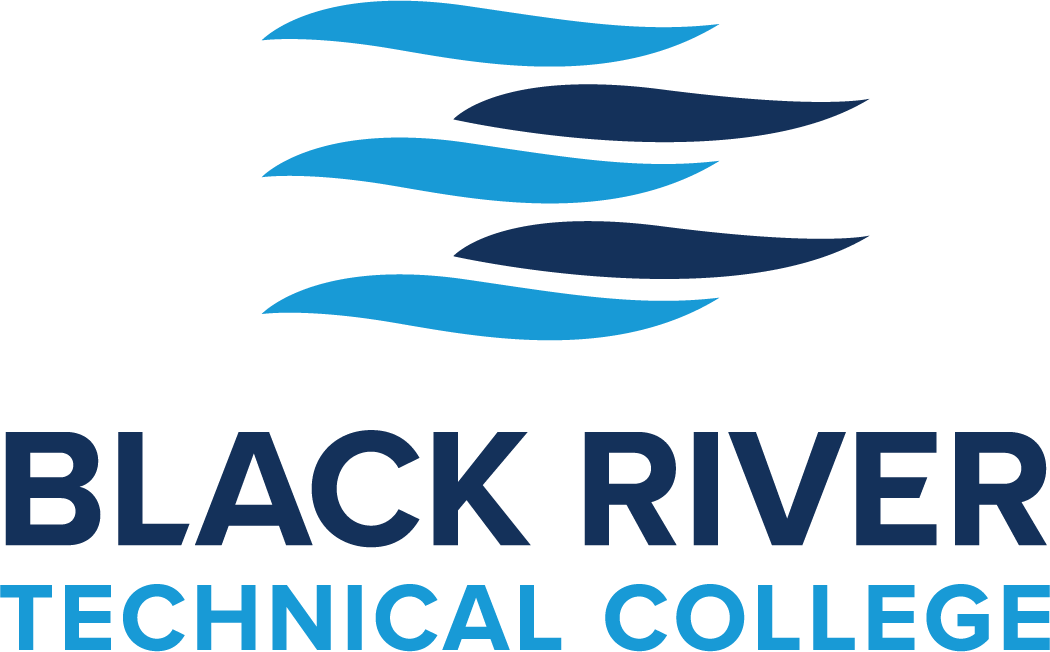If you have other questions not answered below, contact us today!
About and Applying for Aid
The Free Application for Federal Student Aid (FAFSA) must be completed each year and sent to the appropriate processing agency in the envelope provided, or you can submit your application electronically by using FAFSA on the web. You may contact the Financial Aid Office for a paper application.
Your eligibility for all forms of federal financial aid, including PELL Grant, Direct Student Loan programs, and Work-Study are determined when you complete the FAFSA. In addition, this form allows you to apply for the Workforce Improvement Grant (grant given by the state of Arkansas).
Our Title IV code is 011948. When you enter this code on the FAFSA, BRTC will automatically receive an electronic version of your processed Student Aid Report (SAR).
A Federal Pell Grant, unlike a loan, does not have to be repaid. Pell Grants are awarded usually only to undergraduate students who have not earned a bachelor's or a professional degree. In some cases, however, a student enrolled in a post-baccalaureate teacher certification program might receive a Pell Grant.
Pell Grants are considered a foundation of federal financial aid to which aid from other federal and nonfederal sources might be added.
To determine your eligiblity for the Federal Pell Grant you must complete the FAFSA application.
When you complete the FAFSA, your eligibility for the Pell Grant is automatically determined.
Many families mistakenly believe they don't qualify for aid, preventing themselves from receiving aid for which they may be eligible simply because they fail to apply. In addition, there are sources of aid, such as Unsubsidized Direct Loans and Parent Loans for Undergraduate Students (PLUS), available regardless of need. The FAFSA form is free. It does not obligate the student or the parent in any way. There is no reason not to apply.
No. You can apply for financial aid any time after January 1 each year. To be awarded federal aid you must be admitted to a degree-seeking or certificate-seeking program. To receive funds, you must be admitted and enrolled at BRTC.
If you haven't received a Student Aid Report (SAR), call the Federal processor at 1-800-4FEDAID. You must provide them with your Social Security number and date of birth as verification.
Probably not. The federal aid programs are built on the premise that educating a child is a family responsibility. It is unfortunate that your parents do not support you in this effort. However, the FAFSA gives specific criteria for determining when a student may file for federal aid without using parental income information, and none of the circumstances you mentioned are listed as factors in that determination.
Federal aid may be transferred to any college/university in the United States. If you are transferring in the middle of the school year, you may call (800) 4-FEDAID and request that it be transferred to the college of your choice. You will be asked for your DRN#, which is located on your SAR (Student Aid Report), and the school code, which for BRTC is 011948. The transfer process may also be completed at www.fafsa.ed.gov.
Financial Aid Eligiblity
A student must be one of the following to be eligible to receive federal student aid (FSA).
- A U.S. citizen or national;
- A citizen of the Freely Associated States: the Federated States of
Micronesia and the Republics of Palau and the Marshall Islands.
(These students can only receive aid from some of the FSA programs
and do not have an A-number/ARN,); or - A U.S. permanent resident or other eligible noncitizen.
If a student must prove their status as a U.S. citizen or national, only certain types of documents are acceptable. The Department doesn’t specify all of the acceptable documents, but here are some documents you might choose to use to prove U.S. citizenship:
- A Certificate of Naturalization (N-550 or N-570) issued by USCIS (or, prior to 1991, a federal or state court), or through administrative naturalization after December 1990 to those who are individually naturalized
- A Certificate of Citizenship (N-560 or N-561) is issued by USCIS to individuals who derive U.S. citizenship through a parent.
- A copy of the student’s birth certificate showing that the student was born in the U.S., which includes Puerto Rico (on or after January 13, 1941), Guam, the U.S. Virgin Islands (on or after January 17, 1917), American Samoa, Swains Island, or the Northern Mariana Islands, unless the person was born to foreign diplomats residing in the U.S. If a student has a birth certificate from a U.S. jurisdiction showing that the student was born abroad (i.e., not in the U.S. or its territories), that birth certificate is not acceptable documentation.
- A U.S. passport, current or expired, (except “limited” passports, which are typically issued for short periods such as a year and which don’t receive as much scrutiny as a regular passport when applying). In the case of nationals who are not U.S. citizens, the passport will be stamped “Noncitizen National.” Five-year-duration U.S. passports (commonly issued to younger students) are considered acceptable documentation, and are not considered “limited”. Passport cards are also acceptable; however, one-year-duration U.S. passports are NOT acceptable documentation
- A wallet-sized passport card, issued by the State Department, is a fully valid attestation of the U.S. citizenship and identity of the bearer, but can only be used for land and sea travel between the U.S. and Canada, Mexico, the Caribbean, and Bermuda.
- A copy of Form FS-240 (Consular Report of Birth Abroad), FS545 (Certificate of birth issued by a foreign service post), or DS1350 (Certification of Report of Birth). These are State Department documents.
Students who are citizens of the Freely Associated States—the Federated States of Micronesia and the Republics of Palau and the Marshall Islands—are eligible for Pell Grants (citizens of Palau are also eligible for Federal Work Study and Federal Supplemental Opportunity Grant). These students are NOT eligible for FSA loans. These students should have a passport from the Freely Associated States or an I-94.
The student should indicate on the FAFSA that he/she is an eligible noncitizen and leave the ARN item blank. If the student doesn’t have an SSN, he enters 666 and ED will give him a number to use, or if he was given a number in the previous year, he must continue to use the same ED-assigned pseudo-SSN due to Pell Lifetime Eligibility Used (LEU) rules.
Acceptable forms of documentation are:
- A Permanent Resident Card (Form I-551 since 1997), or
- A Resident Alien Card (Form I-551 before 1997), or
- An Alien Registration Receipt Card (Form I-151, issued prior to June 1978), OR
- An Arrival/Departure Record (CBP Form I-94) or the Departure Record (Form I-94A which is used at land border points of entry with the endorsement ”Processed for I-551. Temporary Evidence of Lawful Admission for Permanent Residence. Valid until (Date Cannot Have Passed). Employment Authorized.\”, OR
- A machine-readable immigrant visa (MRIV) in the holder’s passport. The MRIV will have an admission stamp, and the statement ”UPON ENDORSEMENT SERVES AS TEMPORARY I-551 EVIDENCING PERMANENT RESIDENCE FOR 1 YEAR” which appears directly above the machine-readable section. An MRIV with this statement, contained in an unexpired foreign passport and endorsed with the admission stamp, constitutes a temporary I-551, valid for one year from the date of endorsement on the stamp.
- A United States Travel Document (mint green cover), which replaces the Reentry Permit (Form I-327) and the Refugee Travel Document (Form I-571). It is used by lawful permanent residents (as well as refugees and asylees) and is annotated with ”Permit to Reenter Form I-327 (Rev. 9-2-03).”
- Persons with nonimmigrant visas, including work visas, students, visitors and foreign government officials are not eligible for FSA with a Form I-94 with the proper endorsements.
- Family unity status individuals.
- Temporary residents.
- Illegal aliens under the legalization (amnesty) program
- Students with “Temporary Protected Status” stamped on their I-94.
Loans
When you submit the FAFSA you should indicate that you are interested in receiving a student loan. If you did not indicate your interest or have changed your mind since you filed, you can contact our office so we can note your aid preferences in your file. Students desiring a loan must make specific requests to the Financial Aid Office.
For both loans, the principal (the original amount a student borrows) is deferred until 6 months after the student graduates or stops attending school at least half-time.
A subsidized loan is one where the government pays the interest on the loan while the student is in school.
An unsubsidized loan is one where the government does not pay the interest while the student is in school; therefore, the student is responsible for paying the interest.
All of these terms refer to the same thing: loan counseling.
The federal government requires all first-time student loan borrowers to participate in loan counseling prior to receiving a Federal Direct Loan. During this session, you will review basic facts about loans, managing your education expenses and your rights and responsibilities as a student loan borrower. You can participate in loan counseling on the web on your computer or in our office.
Yes. You may cancel all or a portion of your loan within ten to fifteen days from the date of the scheduled disbursement date. To cancel a student must contact either the Financial Aid Office or the lender.
Refunds
- All student refund checks are issued by mail, to the address on file with the Registrar's Office.
- Students with multiple sources of financial aid could be due a refund from more than one source, in which case a separate refund check would be issued for each funding source.
- Pell grant refunds are issued within 30-45 days after classes begin for a Fall and Spring semesters and within the 2nd to 3rd week of class for Summer terms.
- Loan refund dates are posted on this link for each semester http://blackrivertech.org/financial-aid. These dates represent when the credit balance is applied to your account and a refund check will be issued to you via mail within 7-10 days from those dates. ** NOTE -- Loans are disbursed in 2 equal disbursements each semester. **
For federal aid refunds (Pell grant & LOANS), an email is sent to your BRTC Student Email account as notification that a refund check has been mailed to you. It is the students\' responsibility to check his/her student email account on a regular basis.
For More Information

A.A., Black River Technical College, B.S., Arkansas State University


Chester, Brandi

Certificate of Proficiency Phlebotomy, A.A., Black River Technical College; B.A., University of Arkansas at Little Rock

Conrey, Ashley

B.S, Arkansas State University; A.S., Black River Technical College

